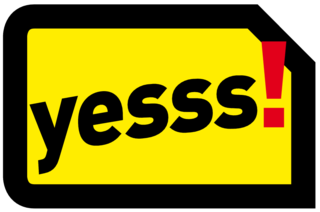Awessssommmeee! Stretchable Words Make Language More Emotive
Stretched words are fun—but are confusing for spell checkers and search engines.
by Christopher Bergland
My 12-year-old daughter looovvveeesss to stretch out spoken and written words by adding extra letters. When I read about a new study (Gray, Danforth, & Dodds, 2020) that analyzed the use of stretchable words in over 100 billion tweets between 2008 and 2016, I texted my daughter a link with the message, "I thought of youuuu when I read this study about streeetccchabblee words." She replied, "Haaahahaha Youuuu knowww me soooooo wellll!!!"
Stretchable words are playful and fun. But, as a parent, I sometimes worry that constantly using misspelled stretched words could make it hard for my seventh-grade kid to switch gears and write in a more formal style when it becomes necessary in high school, college, and beyond.
Sharing this first-of-its-kind, evidence-based research on stretchable words with her was a good conversation starter about a new elephant in the [cyberspace] room: Stretched words are in almost every text message bubble my daughter sends.
We all know that stretched words are a growing trend, but they're rarely found in published literature or dictionaries. As you'd expect, "hahahahahahaha" is not in the Oxford English Dictionary. That said, stretched words have become an everyday, commonplace phenomenon in social media posts and text messages.
The latest research (2020) on stretched words by Tyler Gray and colleagues at the University of Vermont is the most comprehensive study to date that uses big data to analyze how people use stretched words on a social media platform. These findings were published on May 27 in the journal PLOS ONE.
Notably, the title of Gray, Danforth, and Dodds' peer-reviewed paper, "Hahahahaha, Duuuuude, Yeeessss!" playfully incorporates three different examples of stretchable words. All kidding aside, this research provides valuable insights into emerging linguistic patterns surrounding the dynamics of purposely mistyping and misspelling stretched words.
The authors sum up the significance of this research on stretchable words in a news release:
"We were able to comprehensively collect and count stretched words like 'gooooooaaaalll' and 'hahahaha,' and map them across the two dimensions of overall stretchiness and balance of stretch, while developing new tools that will also aid in their continued linguistic study, and in other areas, such as language processing, augmenting dictionaries, improving search engines, analyzing the construction of sequences, and more."
The amount of "stretchiness" in a word refers to how many extra letters tend to be added to a stretchable word. For example, short words like "ha" have a very high degree of stretchiness because the letters can easily be repeated (e.g., "hahahahahaha") to illustrate the degree that something is funny.
Similarly typing "e" and "s" numerous times in a very stretchy word like "yes" (e.g., "yeeeesssssssss") can emphasize the degree of someone's enthusiasm by elongating the word. Conversely, some words like "infinity" are more complex and have lower stretchability, so the kernel of the word is usually just augmented by repeating the last letter (e.g., "infinityyyyyy") to make a point that something is taking forever.
The "balance" of a stretchable word refers to the degree that certain letters can easily be repeated to stretch out a word. "Hahaha" and "hehehe" have completely different meanings but have an equal amount of balance.
In a 2015 New Yorker article about slang, "Hahaha vs. Hehehe," Sarah Larson discussed her use of stretched words:
"I'm a big real-life laugher, and in recent years, in e-mails, chats, and texts, I've become a big 'haha'-er. You say something hilarious, I'll write a few 'ha's. That's how I e-laugh. I realize that this isn't especially dignified. My 'haha's make me look the way I do in party photos: open-mouthed, loud, a little vulgar. Writing 'hahaha' makes you look deranged, but, then again, so does laughing. I've accepted this state of affairs, and my friends have, too, for the most part."
I have mixed feelings about the increased use of stretched words. On the one hand, I love the occasional use of a well-balanced, stretchable word in a text message; stretched words make written and spoken language more emotive (e.g., "From Hollywooood, heeerrrre's Johnny!") without the use of an emoji or emoticon. However, on the flip side, much like overusing exclamation points in a written document, stretching out too many words in a text can be annoying and dilutes their impact.
It will be interesting to see if the ubiquity of stretched words in casual correspondence is just a short-lived fad, or if some stretched words are here to stay and need to be added to dictionaries because they've become part of our common vernacular.
How will lexicographers who write and edit dictionaries deal with deciding "to add or not to add" stretchable words to their dictionaries? Merriam-Webster's online dictionary currently includes "ha ha" and "he-he." But, like most dictionaries, Merriam-Webster doesn't offer a definition for hahaha or hehehe, which have a different meaning than simply typing "ha ha" or "he-he," which can sound curt or sarcastic in a text message.
Based on the criteria lexicographers use when deciding to enter a new word to a dictionary, it seems inevitable that more stretched words will be added to dictionaries in the near future, as their everyday usage becomes more mainstream. Stayyyy tuned!